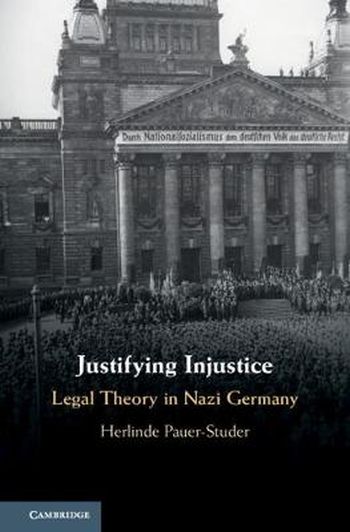We will be closed from 5pm Thursday 17th April for the Easter Bank Holidays, re-opening at 8.30am on Tuesday 22nd April. Any orders placed during this period will be processed when we re-open.

Post-war legal scholars commonly consider the Third Reich's judicial system to be the paradigm of 'evil law'. By examining how crucial parts of this distorted normative order evolved and were justified by regime-loyal legal theorists, we can appreciate how law can bend to a political ideology and fail to keep state power from transgressing elementary standards of humanity and the rule of law. From 1933 to 1939, a flood of publications reflected on the question of how to adapt law to the political ends of National Socialism, debating both the normative and constitutional foundations of the National Socialist state, and the proper form and content of criminal and police law in this new political framework.
These debates, the main threads of which are central to this book, reveal the normative ideas driving the Fuhrer state and the legal subtext to the Nazi regime's escalating atrocities.